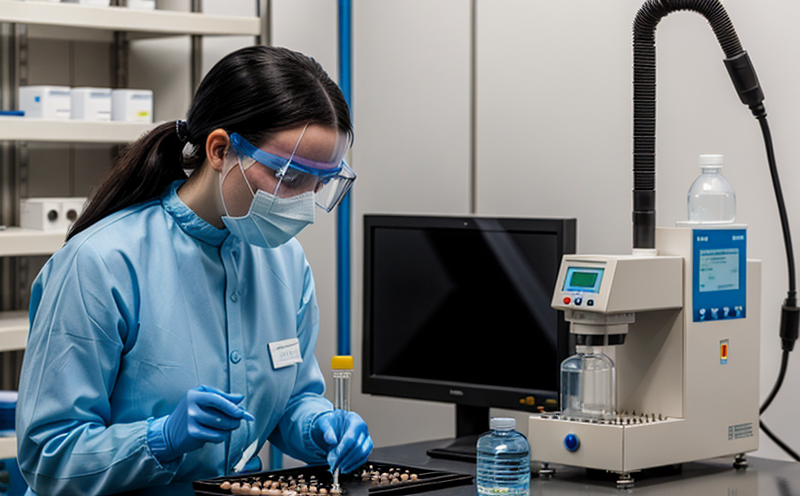Raman Spectroscopy Chemical Characterization Testing
In pharmaceutical testing, ensuring product purity is paramount. Raman spectroscopy plays a crucial role in chemical characterization and impurity profiling by providing non-destructive, rapid, and accurate analysis of molecular structures within pharmaceutical compounds.
The technique relies on the interaction between light from a laser source and molecules in the sample, resulting in a spectrum that reflects the unique vibrational modes of different substances. This capability makes Raman spectroscopy an indispensable tool for identifying unknown compounds, quantifying impurities, and validating drug formulations.
Our service offers comprehensive testing using advanced Raman instrumentation to meet stringent regulatory requirements such as those outlined by the FDA, EMA, and WHO. We provide detailed reports that include spectral data, molecular fingerprints, and quantitative analysis results, ensuring clients are equipped with robust evidence for compliance and product quality assurance.
In addition to its analytical precision, Raman spectroscopy is highly versatile and can be used in various sample formats including solids, liquids, and powders. This flexibility allows us to accommodate diverse client needs across the pharmaceutical sector, from raw materials to finished products.
Our team of experienced chemists and engineers ensures that each test adheres to international standards like ISO 17025 and ASTM E1396. By leveraging our expertise and state-of-the-art equipment, we deliver reliable data that supports critical decisions in product development, manufacturing process optimization, and quality control.
For instance, in the case of API (Active Pharmaceutical Ingredients), Raman spectroscopy can quickly identify even trace amounts of impurities, which is crucial for maintaining the efficacy and safety of medications. Similarly, when analyzing excipients or finished dosage forms, our testing helps ensure consistency and adherence to formulation specifications.
Moreover, Raman spectroscopy supports environmental analysis in pharmaceutical manufacturing by monitoring the purity of water used in production processes and detecting contamination early on. This proactive approach not only enhances product quality but also contributes significantly to sustainable practices within the industry.
Applied Standards
| Standard | Description |
|---|---|
| ISO 17025:2017 | International standard for the general requirements for the competence of testing and calibration laboratories. |
| ASTM E1396-18 | American Society for Testing and Materials standard specifying the use of Raman spectroscopy for chemical analysis in materials science. |
| USP , | United States Pharmacopeia chapters on dissolution testing and impurity profiling, respectively. |
| European Pharmacopoeia 08.07 | European Pharmacopoeia monograph for the use of Raman spectroscopy in pharmaceutical analysis. |
The rigorous adherence to these standards ensures that our testing results are credible and universally accepted, enhancing trust among regulatory bodies and industry stakeholders.
Industry Applications
- API (Active Pharmaceutical Ingredients) Analysis: Identifying impurities down to trace levels.
- Excipient Quality Control: Ensuring excipients meet specified quality criteria.
- Finished Dosage Form Validation: Confirming the accuracy of final product formulations.
- Water Purification Monitoring: Detecting contamination in water used for pharmaceutical processes.
Raman spectroscopy's ability to provide real-time, non-destructive analysis makes it particularly suitable for these applications. Its versatility allows us to tailor our services to meet the specific needs of different segments within the pharmaceutical industry.
Environmental and Sustainability Contributions
- Eco-friendly: Raman spectroscopy does not require chemical reagents or solvents, minimizing waste generation.
- Non-destructive analysis: Ensures that samples remain intact after testing, reducing material loss.
- Energy efficient: The technique uses minimal power and has a lower carbon footprint compared to alternative analytical methods.
- Precision detection: Early identification of contaminants helps prevent environmental pollution by ensuring compliance at every stage of production.
By integrating Raman spectroscopy into our services, we contribute positively to the pharmaceutical industry's efforts towards sustainability. Our commitment to these practices reflects our dedication to protecting the environment while delivering high-quality testing solutions.





